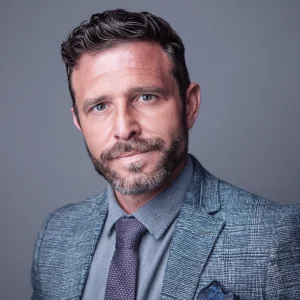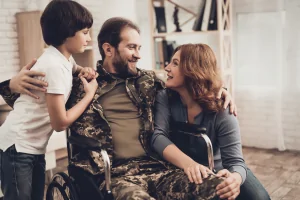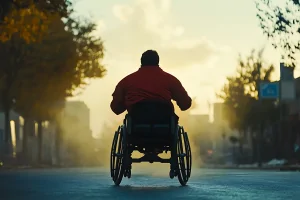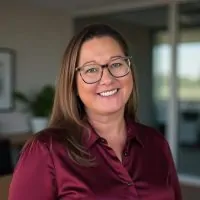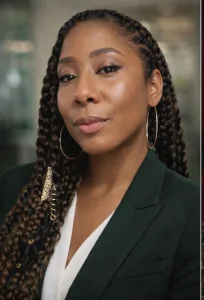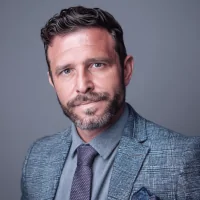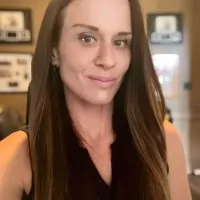Understanding the Crisis of Veteran Homelessness
Homelessness among veterans is one of the most urgent and heartbreaking challenges facing the United States today. Veterans make up roughly 6% of the U.S. adult population, yet they have long been overrepresented in the homeless community. On any given night, tens of thousands of veterans sleep on the streets, in shelters, or in temporary housing.
The causes are complex, but the main contributing factors include:
-
Untreated mental health conditions, such as PTSD and depression.
-
Substance use disorders that often develop as coping mechanisms.
-
Lack of affordable housing and difficulty accessing rental assistance.
-
Unemployment or underemployment, especially during the transition to civilian life.
-
Social isolation, which often follows discharge from military service.
For many veterans, leaving active duty also means losing the tight-knit bonds they built with their battle buddies — the shared sense of purpose and trust that’s difficult to replicate in civilian life. Without that support system, some struggle to adjust, eventually slipping into cycles of instability.
Recognizing the seriousness of the issue, the Department of Veterans Affairs (VA) has made ending veteran homelessness a top national priority. Through coordinated federal, state, and community efforts, the VA offers programs that address not only immediate housing needs but also long-term recovery, mental health, and employment stability.

The Housing-First Approach: Stability Before Everything Else
The cornerstone of the VA’s homelessness strategy is the Housing First model. This approach prioritizes placing veterans into safe, stable housing before addressing other challenges like addiction, unemployment, or mental illness. Housing provides the foundation upon which recovery can begin.
Key programs under this model include:
HUD-VASH (Housing and Urban Development – VA Supportive Housing)
A partnership between the U.S. Department of Housing and Urban Development (HUD) and the VA, this program combines rental assistance vouchers with case management and clinical services. It’s primarily designed for veterans with severe mental health conditions or substance use disorders.
Grant and Per Diem (GPD) Program
GPD funds community agencies that offer transitional housing and supportive services. Veterans can stay in these facilities while working toward permanent housing, receiving mental health support, and participating in employment programs.
HCHV (Health Care for Homeless Veterans)
This program focuses on connecting veterans to temporary housing, health care, and case management through VA medical centers.
SSVF (Supportive Services for Veteran Families)
SSVF prevents homelessness by helping at-risk veterans and their families maintain their current housing or quickly transition into new permanent housing.
Each of these programs recognizes that housing is not simply a roof over one’s head — it’s the first step toward rebuilding stability, dignity, and hope.
Addressing Mental Health and Substance Use
A large portion of homeless veterans also struggle with mental health disorders or substance use. The VA’s integrated approach ensures that these issues are treated concurrently with housing needs.
Veterans have access to:
-
VA Mental Health Clinics, which offer therapy, medication management, and individualized treatment plans.
-
Substance Use Disorder Programs, providing inpatient and outpatient care, detox support, and long-term recovery options.
-
Peer Support Specialists, veterans who have successfully navigated recovery and now mentor others.
-
Suicide Prevention Coordinators available at every VA medical center.
Programs like Warriors Heart in Bandera, Texas, and other VA-approved facilities across the country focus specifically on veterans and first responders, offering specialized care for trauma, addiction, and PTSD.
Importantly, these mental health services are not conditional — veterans don’t have to be “fixed” before they can receive housing. Instead, the VA works to ensure that mental health care and housing support go hand in hand.
Employment and Job Training: Building Purpose and Independence
Once veterans secure stable housing, the next essential step is rebuilding purpose through work. Employment provides income, self-esteem, and a renewed sense of belonging.
The VA offers several programs designed to help homeless and at-risk veterans find meaningful jobs:
Compensated Work Therapy (CWT)
Provides transitional work opportunities and training within VA facilities, helping veterans re-enter the workforce in a supportive environment.
Vocational Rehabilitation and Employment (VR&E)
For veterans with service-connected disabilities, VR&E offers career counseling, training, and educational assistance. It’s a bridge back to employment or higher education.
Homeless Veterans Community Employment Services (HVCES)
These services connect veterans to employers, job fairs, and resume workshops. Specialists advocate for veterans, ensuring they receive fair opportunities for stable jobs.
Many veterans who participate in VA housing programs receive priority placement in these employment initiatives, creating a seamless transition from homelessness to self-sufficiency.
How and Where Veterans Can Get Help
For veterans in crisis or at risk of losing their housing, the VA provides multiple access points for immediate assistance:
-
National Call Center for Homeless Veterans: 1-877-4AID-VET (1-877-424-3838).
-
VA Medical Centers: Ask for the Homeless Veterans Coordinator on site.
-
Vet Centers: Offer counseling, group therapy, and community resource referrals.
-
SSVF Grantee Agencies: Located in most major U.S. cities.
-
HUD-VASH Case Management: Available through local VA or housing authorities.
No matter where a veteran is in their journey, there’s a path back to housing, health, and hope.
Community Partnerships: The Power of Local Support
The VA’s efforts are strengthened by thousands of nonprofits, faith-based groups, and local agencies working to support homeless veterans. These organizations often fill critical gaps, offering services such as:
-
Shelters and transitional housing
-
Food pantries and clothing banks
-
Counseling and case management
Notable examples include:
-
Volunteers of America
-
The Salvation Army
-
Community Resource and Referral Centers (CRCs)
-
Local Continuum of Care organizations
By working together, these groups help ensure that no veteran is left behind.
A Message of Hope and Renewal
Homelessness is not a character flaw — it’s a solvable problem. For veterans, the solutions already exist, and every day, lives are being transformed.
Housing programs like HUD-VASH, therapy at VA clinics, and job training through CWT and VR&E provide real, tangible change. With coordinated support, veterans can and do rebuild their lives — finding stability, dignity, and community once again.
One veteran’s story perfectly captures this transformation. After years of instability, he accessed VA disability benefits, received help for his mental health conditions, and enrolled in vocational rehabilitation. Today, he’s thriving — back in school, working, and living in permanent housing.
That’s what real help, real hope, and real change look like.
Also read: Top 5 Reasons VA Denies Sleep Apnea Claims
At Prestige Veteran Medical Consulting, a veteran-owned company, we specialize in Independent Medical Opinions (IMOs) known as Nexus letters.
Our purpose is to empower YOU, the veteran, to take charge of your medical evidence and provide you with valuable educational tools and research to guide you on your journey.
Understanding the unique challenges veterans face, our commitment lies in delivering exceptional service and support.
Leveraging an extensive network of licensed independent medical professionals, all well-versed in the medical professional aspects of the VA claims process, we review the necessary medical evidence to incorporate in our reports related to your VA Disability Claim.
Prestige Veteran Medical Consulting is not a law firm, accredited claims agent, or affiliated with the Veterans Administration or Veterans Services Organizations. However, we are happy to discuss your case with your accredited VA legal professional.



